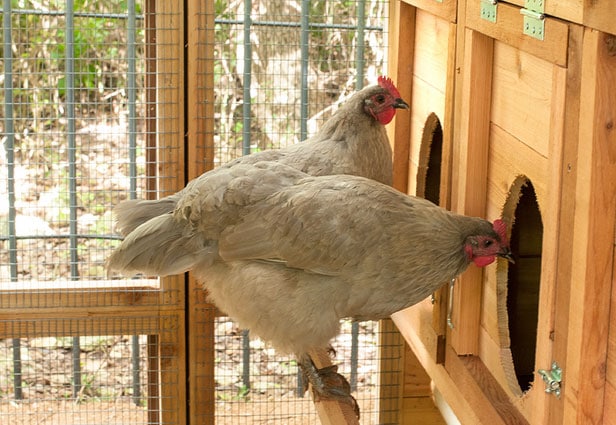
Keeping chickens can be an incredibly rewarding experience, but one of the most important factors for their well-being is providing them with a suitable coop. Finding the perfect hen coop for your flock is not always an easy task, especially with the variety of options available on the market. To help you make an informed decision, we’ve put together a comprehensive guide to choosing the right hen coop for your feathered friends.
Consider Your Flock’s Size
The first step in choosing the right hen coop is to consider the size of your flock. The coop should provide enough space for all of your chickens to roost comfortably, move around, and lay eggs. As a general rule of thumb, each hen should have at least 4 square feet of space inside the coop and 10 square feet in the outdoor area. If your flock is on the larger side, you’ll need to invest in a larger coop to accommodate them all. Conversely, if you have a smaller flock, a smaller coop will suffice.
Roosting Bars and Nesting Boxes
Another important factor to consider when choosing a hen coop is the availability of roosting bars and nesting boxes. Roosting bars are essential for chickens to perch on at night, as they prefer not to sleep on the ground. Ideally, the coop should have enough roosting bars for all of your hens to comfortably sleep at night.
Nesting boxes are also crucial for egg-laying hens, providing them with a safe and secure environment to lay their eggs. The coop should have enough nesting boxes for the number of hens in your flock, ideally one box for every 3-4 hens. Additionally, the nesting boxes should be easily accessible for egg collection and cleaning.
Predator Protection
Protecting your flock from predators is a top priority when it comes to choosing the right hen coop. The coop should be sturdy and secure, with solid construction and hardware cloth to prevent predators from gaining access. It’s also important to consider the coop’s design to ensure that it is predator-proof, as some predators may be able to dig under or squeeze through small openings. Additionally, the coop should have a secure locking mechanism to keep your hens safe at night.
Ventilation and Light
Proper ventilation is crucial for the health and well-being of your flock. The coop should have ample ventilation to allow for the free flow of fresh air, as poor ventilation can lead to respiratory issues and other health problems in chickens. Additionally, the coop should have windows to provide natural light, as well as insulation to regulate temperature and keep your hens comfortable in all seasons.
Ease of Cleaning and Maintenance
Keeping a hen coop clean is essential for the health and happiness of your flock, so it’s important to choose a coop that is easy to clean and maintain. Look for features such as removable roosting bars and nesting boxes, as well as access doors and hatches that make cleaning and egg collection a breeze. Additionally, the coop should be constructed from materials that are easy to wipe down and disinfect, such as plastic or metal.
Consider the Location
When choosing a hen coop, it’s essential to consider the location where it will be placed. The coop should be positioned in a well-drained area that is free from flooding, as well as in a spot that receives plenty of sunlight. Additionally, the coop should be situated away from potential predators, such as foxes and raccoons, and should provide your hens with some shade during the hottest parts of the day.
The Right Coop Design
There are several design options when it comes to hen coops, and the choice will largely depend on your personal preferences and the needs of your flock. Some common designs include traditional A-frame coops, large walk-in coops, and portable coops on wheels. Consider the layout of your yard, the amount of space you have available, and how much access you’ll need to the coop for cleaning and maintenance when choosing the right design for your flock.
Budget and Quality
Last but not least, consider your budget and the quality of the hen coop before making a final decision. Quality coops may come with a higher price tag, but they are likely to be more durable and require fewer repairs over time. Consider the long-term investment of a well-built coop, as it may save you money in the long run compared to purchasing a cheaper, lower-quality coop that will need frequent repairs and replacements.
In Conclusion
Choosing the right hen coop for your flock is a crucial decision, as it will directly impact the health and happiness of your chickens. By considering factors such as flock size, roosting bars and nesting boxes, predator protection, ventilation, ease of cleaning, location, coop design, budget, and quality, you can make an informed decision when it comes to finding the perfect coop for your feathered friends. With the right coop, your flock will thrive and provide you with fresh eggs for years to come.

















